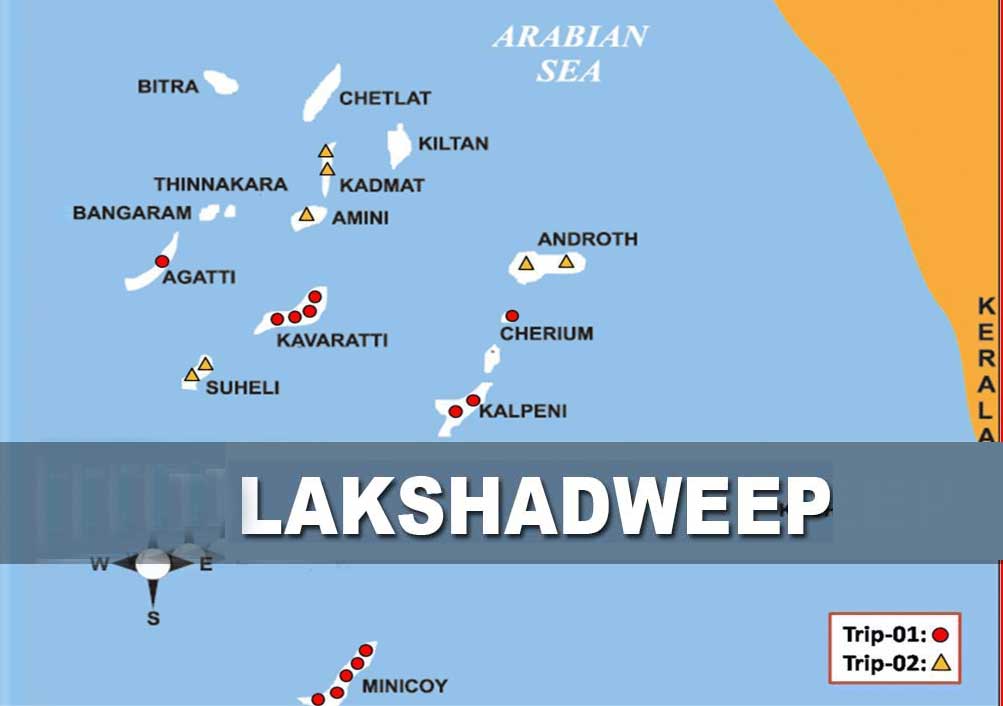IN RP 97 OF 2023- KERL HC- Administrator of Lakshadweep cannot initiate disciplinary proceedings against Judicial Officer since only High Court has control over subordinate Courts by virtue of Article 235: Kerala High Court while stating that provisions of CPC only a guiding factor while deciding review petition under Articles 226 and 227
Justice P.V. Kunhikrishnan [21-06-2023]

Read more: K. Cheriya Koya v. U.t.administration Of Lakshadweep
Simran Singh
New Delhi, June 23, 2023: The Kerala High Court reviewed and modified its previous direction to the Administrator of Lakshadweep to take disciplinary action against a judicial officer and held that control over the District Court and subordinate Courts of the Union Territory of Lakshadweep lied with the High Court itself by virtue of Article 235 of the Constitution of India which included the power to conduct disciplinary proceedings against presiding officers of District and other subordinate Courts under their jurisdiction.
The Single Judge Bench of Justice P.V. Kunhikrishnan observed that “In the light of Article 235 of the Constitution of India, it is declared that the control over the district court and courts subordinate thereto mentioned in Article 235 of the Constitution of India includes the power of disciplinary proceedings against the presiding officers of district court and courts subordinate thereto.”
It was further held that “Since the district court and subordinate courts in Lakshadweep are under the supervision of the High Court of Kerala, it is declared that the High Court of Kerala has got the power to initiate disciplinary proceedings against the presiding officers of the district court and courts subordinate thereto in the Lakshadweep Islands. I also clarify that the 1st respondent is free to frame Rules in tune with Article 235 of the Constitution of India, if necessary.”
The Bench rejected the contention of the review petitioner that once a portion of the judgment was to be reviewed, the entire judgment was to be recalled and it was the function of the Court to pass a fresh judgment. “the provisions of the Civil Procedure Code (1908) is not as such applicable while deciding a review petition filed in a writ petition under Article 226 and 227 of the Constitution of India. That can only be a guiding principle. The jurisdiction of this court under Article 226 and 227 of the Constitution of India, to review a judgment is wide and not controlled by the provisions of the Civil Procedure Code.”
In the matter at hand, the petitioner being a former sub-judge or chief judicial magistrate of Amini, Lakshadweep, filed a review petition against the 23.12.2022 judgment of the High Court in which the Administrator of Lakshadweep was directed to initiate a detailed disciplinary proceedings against him. This direction was issued on a prayer moved by several persons alleging that while he was presiding as a Magistrate, he manipulated the statement of the Investigation Officer in a 2015 case in which they were involved. Accordingly, the Court had passed extraordinary orders to place the Magistrate under suspension during pendency of enquiry so as to ensure that he did not try to influence the witness or intrude into the documents.
It was the case of the review petitioner that the Administrator did not have disciplinary power over a judicial officer and the Court ought not have directed an Administrator to take disciplinary action as only the High Court had control over subordinate Courts. It was argued that the Administrator, being the executive could not be given powers to suspend or take action against the review petitioner who was a judicial officer, as this would be against the principles of separation of powers and independence of the judiciary.
However, the Administrator of Lakshadweep argued that by virtue of Clause 5(ii) of the Constitution of Civil Codes in the Laccadive, Minicoy and Amindivi Islands (Civil Codes) Regulations 1965, the Administrator, after consultation with the High Court, could make rules regarding who may be appointed as Subordinate Judges and Munsiffs.
On the other hand, the counsel for the Kerala High Court stated that the High Court was bestowed with the control over the judicial officers of Lakshadweep.
The Bench observed that as per Article 235, the High Court had control over District Courts and its subordinate Courts which included posting, promotion and grant of leave to persons in judicial service. It went on to refer to a catena of Supreme Court cases and concluded that ‘Control’ in Article 235 included initiating disciplinary proceedings against the presiding officers of District Courts and Courts subordinate to them. “If there is any rule framed in violation of Article 235 of the Constitution, the same need not be looked into, because Article 235 of the Constitution prevails over all other rules. The Union territory of Lakshadweep is free to make appropriate rules, if necessary, in tune with Article 235 of the Constitution of India.”
The Court accordingly reviewed and modified a part of its earlier judgment vis-a-vis its earlier direction to the Administrator of Lakshadweep and directed the High Court to take appropriate action against the review petitioner stating that directions to the Administrator was now directions to the High Court of Kerala.
The Court directed the High Court to take appropriate action against the review petitioner and conduct a detailed enquiry about his actions mentioned in the judgment in accordance with law. The Bench also made it clear that the review petitioner would be deemed to be in suspension until the High Court of Kerala passed consequential orders in the present case.
Sign up for our weekly newsletter to stay up to date on our product, events featured blog, special offer and all of the exciting things that take place here at Legitquest.




Add a Comment